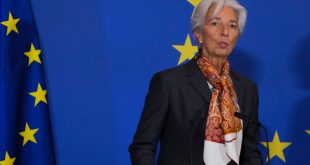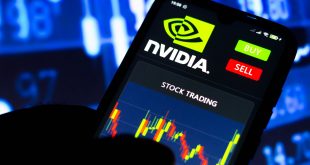Nvidia’s stock surged 3.96% to $135.07 by 3:20 PM EDT on Wednesday, May 14, 2025, at 11:28 PM +04, extending a nearly 6% rally from Tuesday and pushing its market capitalization past $3 trillion for the first time since February, a move that has bolstered US stock indices and sparked optimism for the US Dollar (USD). The gains were fueled by a series of multibillion-dollar AI chip deals with Saudi Arabia, unveiled during a high-profile investment forum attended by President Trump, alongside signals of easing export restrictions from the Trump administration. This development has injected fresh momentum into the tech sector, with broader market implications as investors reassess the outlook for US equities and currency strength.
The catalyst for Nvidia’s rise was a $7 billion agreement to supply hundreds of thousands of AI chips, including 18,000 advanced GB300 chips for its latest Grace Blackwell supercomputer, to Saudi Arabia’s newly launched Humain venture over the next five years. Backed by the kingdom’s $925 billion Public Investment Fund and chaired by Crown Prince Mohammed bin Salman, Humain also secured $10 billion deals with Advanced Micro Devices (AMD) and Qualcomm (QCOM), which saw their stocks climb 4.23% and 0.87% respectively. Super Micro Computer (SMCI), a key Nvidia partner, soared 15.27% after announcing a $20 billion deal with Saudi data center firm DataVolt, amplifying the positive ripple effect across US tech stocks and lifting the Nasdaq by 1.5% to 18,979 points on Tuesday.
The broader market context supports this tech-driven surge, with the S&P 500 gaining 0.8% to 5,888 points and the Dow holding steady despite a 0.4% dip to 42,256 points, reflecting a mixed but resilient US stock performance. The Trump administration’s move to rescind Biden-era export curbs on Nvidia chips, including lifting the AI diffusion rule, has further boosted investor confidence, potentially strengthening the USD as global demand for US technology grows. The US Dollar Index (DXY), which had softened to 101.29 on Tuesday amid softer inflation data, could see renewed support if these deals signal a robust export outlook, countering recent tariff-related pressures.
However, uncertainties linger, particularly with the Department of Commerce’s stance that using Huawei Ascend chips worldwide violates US export controls, a move seen as favoring Nvidia and other US AI firms but risking retaliation from China. Analysts suggest that while Saudi Arabia’s deep-pocketed investment alleviates concerns about AI spending sustainability, the full realization of these deals remains uncertain. As Nvidia’s stock inches toward positive territory for 2025 after a challenging start, and with a touted $600 billion US-Saudi investment package still under scrutiny, the interplay of trade policies, chip exports, and market sentiment will be critical in shaping the trajectory of US stocks and the Dollar in the weeks ahead.
Home / Economic Report / Daily Economic Reports / Can Nvidia’s Saudi AI Chip Deals Propel US Stocks and the Dollar Higher?
Check Also
Nvidia and Meta Rally on Strategic AI Infrastructure Partnership as AMD
Shares of Nvidia and Meta Platforms moved higher in premarket trading on Wednesday after the …
 Noor Trends News, Technical Analysis, Educational Tools and Recommendations
Noor Trends News, Technical Analysis, Educational Tools and Recommendations




